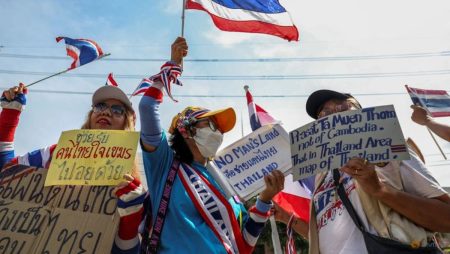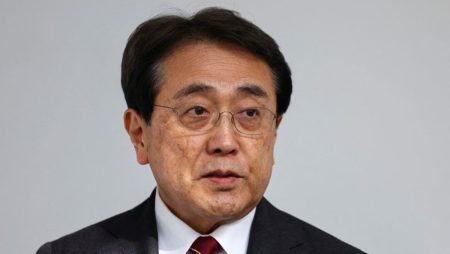The ongoing legal saga surrounding Najib Razak’s imprisonment for corruption and his subsequent attempts to secure house arrest has evolved into a complex political drama, impacting not only the individuals involved but also the broader Malaysian political landscape. This intricate situation has placed Prime Minister Anwar Ibrahim in a precarious position, tarnishing his image as a reformer and raising questions about his administration’s commitment to upholding the rule of law. Simultaneously, the monarchy, traditionally a symbol of stability and unity, has been drawn into the fray, forced to navigate a sensitive political minefield with potentially far-reaching consequences.
Najib Razak’s conviction on corruption charges related to the 1MDB scandal marked a watershed moment in Malaysian politics, signaling a potential shift towards greater accountability and transparency. However, his persistent legal maneuvers to overturn the conviction and secure release, culminating in his recent application for a royal pardon, have reignited debate about the fairness and impartiality of the justice system. Critics argue that Najib’s influential connections and political legacy have granted him preferential treatment, undermining public trust in the judiciary and reinforcing perceptions of elitism within the political system. This narrative has resonated with segments of the population who view Najib as a victim of political persecution, further complicating the government’s efforts to manage public perception.
Anwar Ibrahim, who assumed the premiership on a platform of good governance and reform, finds himself caught between the imperatives of upholding the rule of law and navigating the complex political realities of the situation. Granting Najib a pardon or house arrest would undoubtedly trigger accusations of political maneuvering and betrayal of his reformist agenda. On the other hand, denying these requests risks alienating a significant portion of the electorate who remain sympathetic to Najib and his political party, UMNO. This delicate balancing act has exposed Anwar to criticism from both sides of the political spectrum, eroding his political capital and potentially jeopardizing his government’s stability.
The monarchy’s involvement in the Najib Razak case adds another layer of complexity to the situation. Traditionally, the Malaysian monarchy plays a largely ceremonial role, staying above the fray of partisan politics. However, their constitutional power to grant pardons has thrust them into the center of this political storm. The decision to grant or deny Najib’s pardon carries immense political weight, potentially influencing the balance of power and shaping the country’s future political trajectory. This delicate situation places the monarchy in an awkward position, forcing them to weigh the legal and political ramifications of their decision carefully. A pardon could be interpreted as an endorsement of Najib’s actions and a challenge to the judiciary’s authority, while a denial could fuel accusations of political bias and further polarize the nation.
The political fallout from the Najib Razak affair extends beyond the immediate players. It has exposed deep-seated divisions within Malaysian society, highlighting ongoing tensions between those who advocate for greater accountability and transparency and those who prioritize political stability and loyalty. This polarization has the potential to destabilize the fragile political equilibrium, hindering the government’s ability to address pressing economic and social challenges. Moreover, the controversy surrounding Najib’s legal battles has cast a shadow over Malaysia’s international reputation, raising concerns about the country’s commitment to combating corruption and upholding the rule of law.
In conclusion, Najib Razak’s ongoing legal campaign to avoid serving his jail sentence has created a multifaceted political crisis in Malaysia. It has damaged Anwar Ibrahim’s political standing, placed the monarchy in an uncomfortable predicament, and exposed deep societal divisions. The ultimate resolution of this affair will have significant implications for Malaysia’s political future, influencing the country’s trajectory towards greater transparency and accountability or a potential regression to the old ways of political maneuvering and patronage. The careful navigation of this complex situation by all parties involved is crucial to maintaining stability and ensuring public trust in the country’s institutions. The delicate balancing act required highlights the fragility of democratic processes and the ongoing challenges of navigating the intersection of law, politics, and the monarchy in a rapidly evolving political landscape.









